Narrow by
-
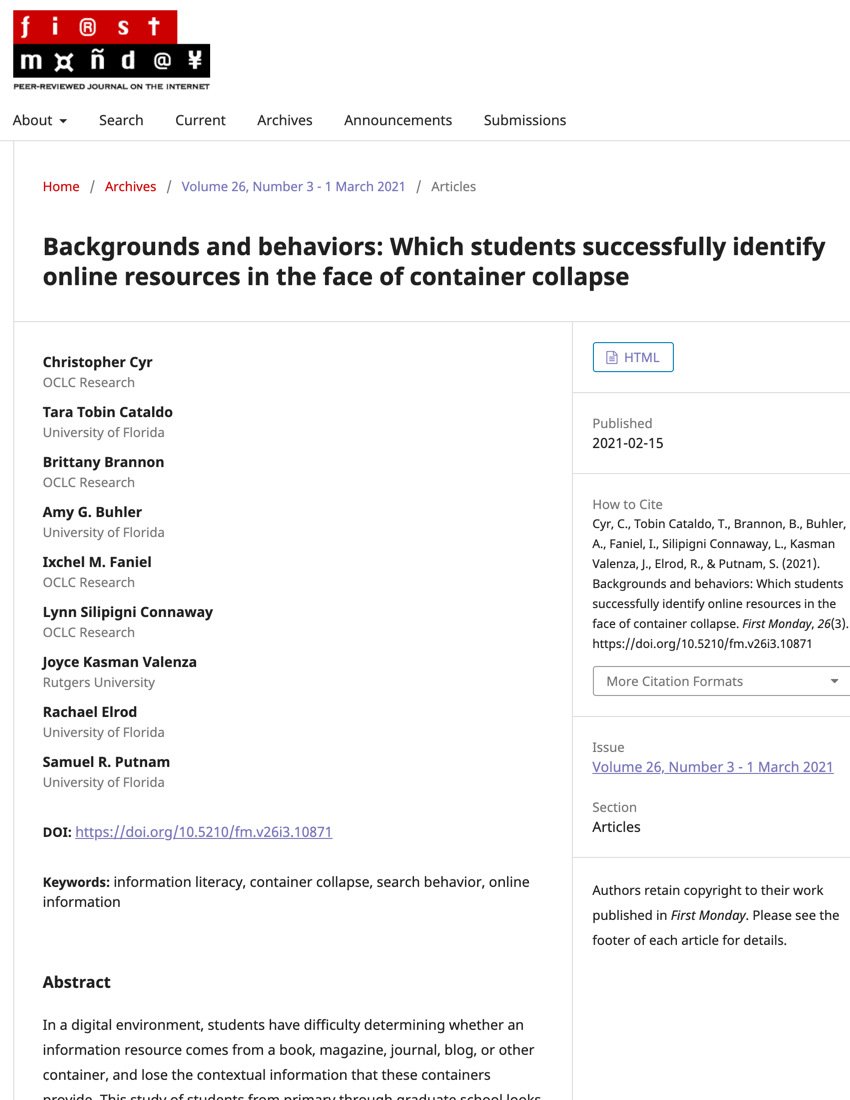
Backgrounds and behaviors: Which students successfully identify online resources in the face of container collapse
15 February 2021
Christopher Cyr, Tara Tobin, Brittany Brannon, Amy G. Buhler, Ixchel M. Faniel, Lynn Silipigni Connaway, Joyce Kasman Valenza, Rachael Elrod, Samuel R. Putnam
This study of students from primary through graduate school looks at their ability to identify the containers of information resources, and how this ability is affected by their demographic traits, the resource features they attended to, and their behaviors during a task-based simulation.
-
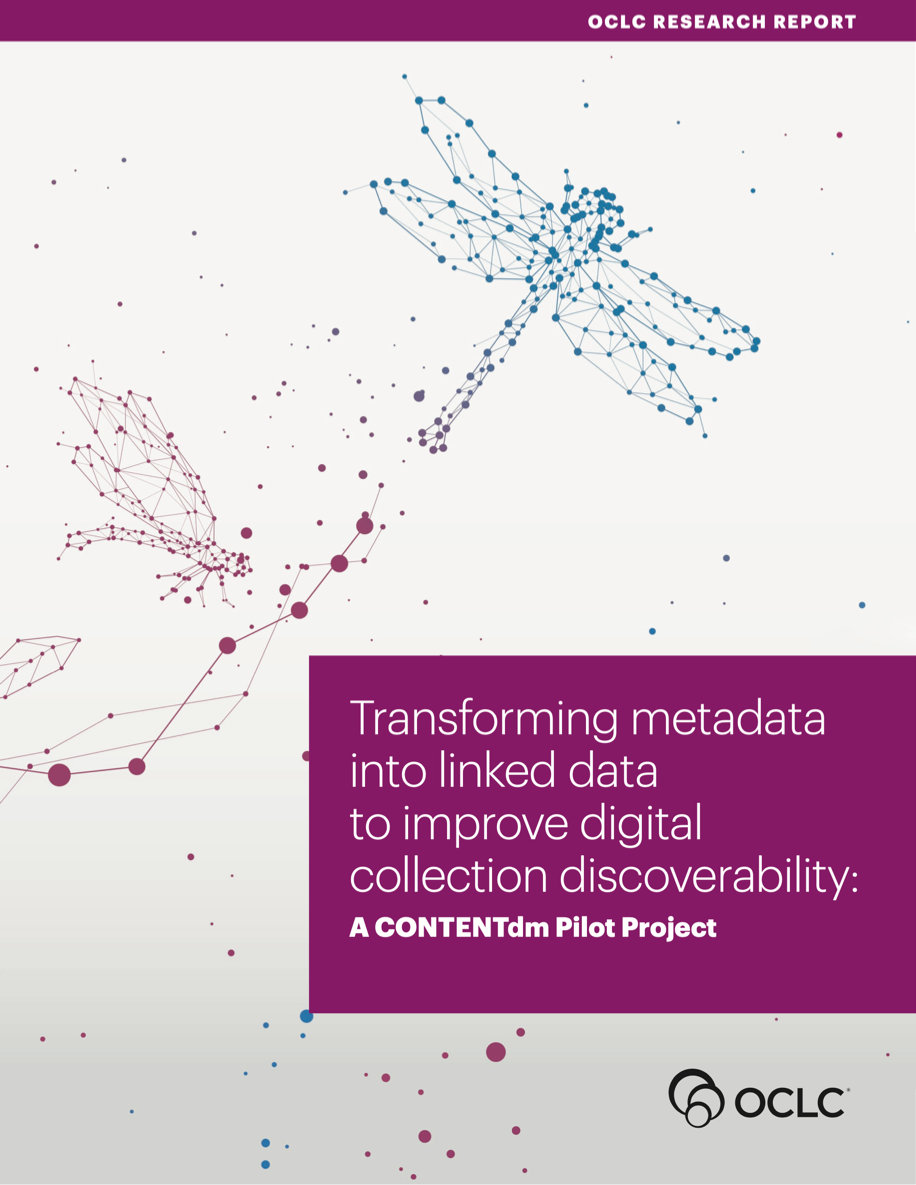
Transforming Metadata into Linked Data to Improve Digital Collection Discoverability: A CONTENTdm Pilot Project
21 January 2021
Greta Bahnemann, Michael Carroll, Paul Clough, Mario Einaudi, Chatham Ewing, Jeff Mixter, Jason Roy, Holly Tomren, Bruce Washburn, Elliot Williams
This report shares the CONTENTdm Linked Data Pilot project findings. In this pilot project, OCLC and five partner institutions investigated methods for—and the feasibility of—transforming metadata into linked data to improve the discoverability and management of digitized cultural materials.
-
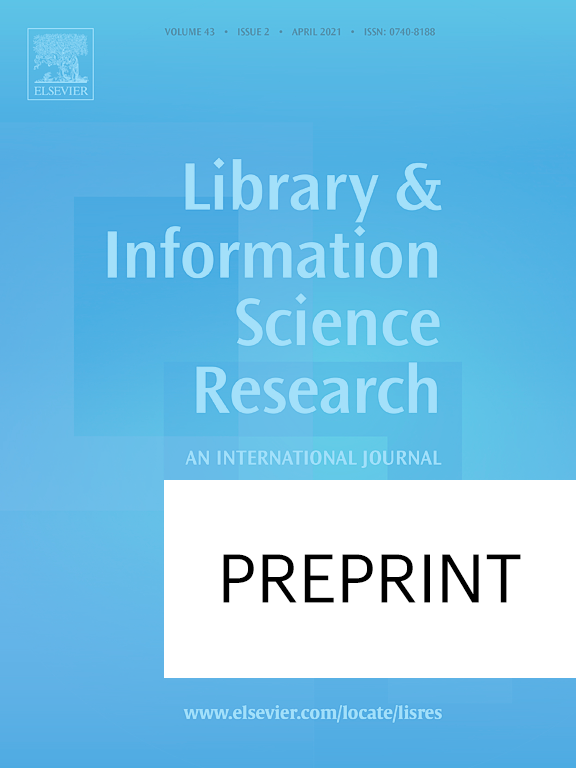
I still go ask someone I enjoy talking to: The use of digital and human sources by educational stage and context
6 January 2021
Chris Cyr, Brittany Brannon, Lynn Silipigni Connaway
How does educational stage affect the way people find information? In previous research using the Digital Visitors & Residents (V&R) framework for semi-structured interviews, context was a factor in how individuals behaved. This study of 145 online, open-ended surveys examines the impact that one's V&R educational stage has on the likelihood of attending to digital and human sources across four contexts.
-
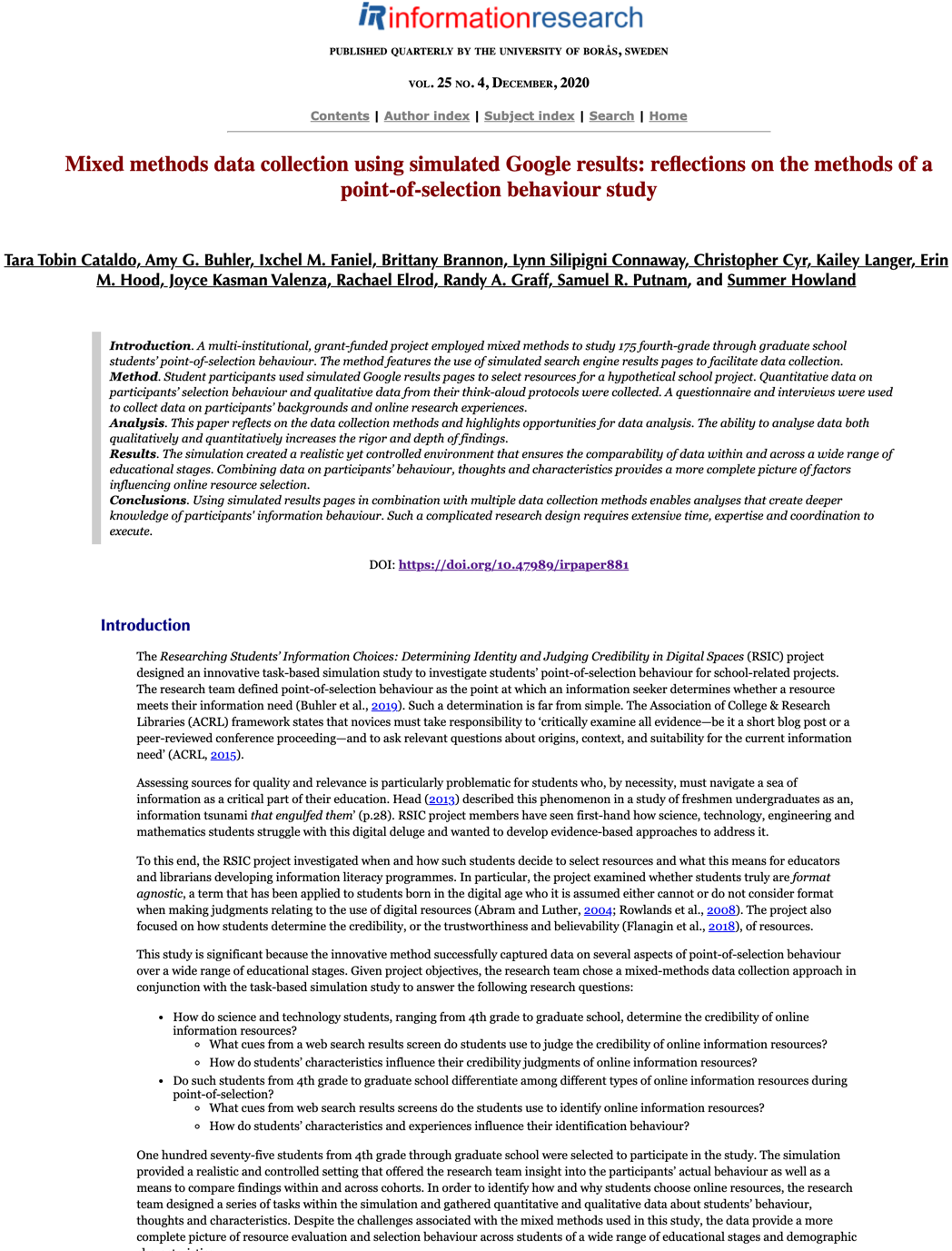
Mixed methods data collection using simulated Google results: reflections on the methods of a point-of-selection behaviour study
16 December 2020
Tara Tobin Cataldo, Amy G. Buhler, Ixchel M. Faniel, Brittany Brannon, Lynn Silipigni Connaway, Christopher Cyr, Kailey Langer, Erin M. Hood, Joyce Kasman Valenza, Rachael Elrod, Randy A. Graff, Samuel R. Putnam, and Summer Howland
A multi-institutional, grant-funded project employed mixed methods to study 175 fourth-grade through graduate school students’ point-of-selection behaviour. The method features the use of simulated search engine results pages to facilitate data collection.
-
Bring Learning to All Library Staff: Scaling and Sustaining Professional Development Content
1 November 2020
Kendra Morgan, Sharon Streams
This chapter describes how WebJunction—a program of OCLC Research that offers a free and open online learning network for those who work in or with libraries—supports the scalability and sustainability of Professional Development. Readers will also get tips for how to make it as accessible and affordable to as many learners as possible.
-

Taking Our Pulse: The OCLC Research Survey of Special Collections and Archives
1 October 2020
Jackie M. Dooley, Katherine Luce
Special collections and archives are increasingly seen as elements of distinction that serve to differentiate an academic or research library from its peers. As this OCLC Research report reveals, however, much rare and unique material remains undiscoverable, and monetary resources are shrinking at the same time that user demand is growing. The balance sheet is both encouraging and sobering.
-
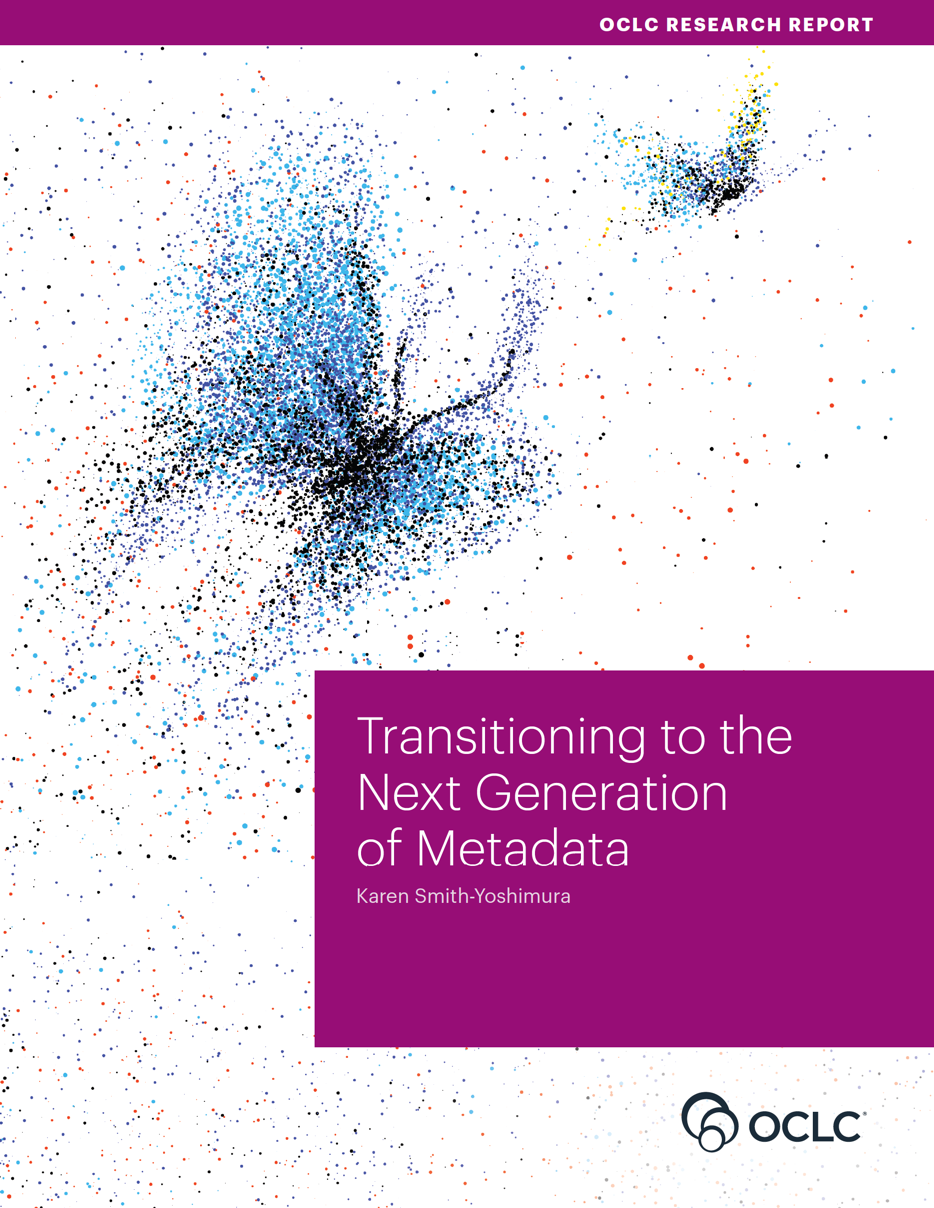
Transitioning to the Next Generation of Metadata
29 September 2020
Karen Smith-Yoshimura
This report synthesizes six years (2015-2020) of OCLC Research Library Partners Metadata Managers Focus Group discussions to trace how metadata services is transitioning into the “next generation of metadata” and its impact on future metadata services and staffing requirements.
-
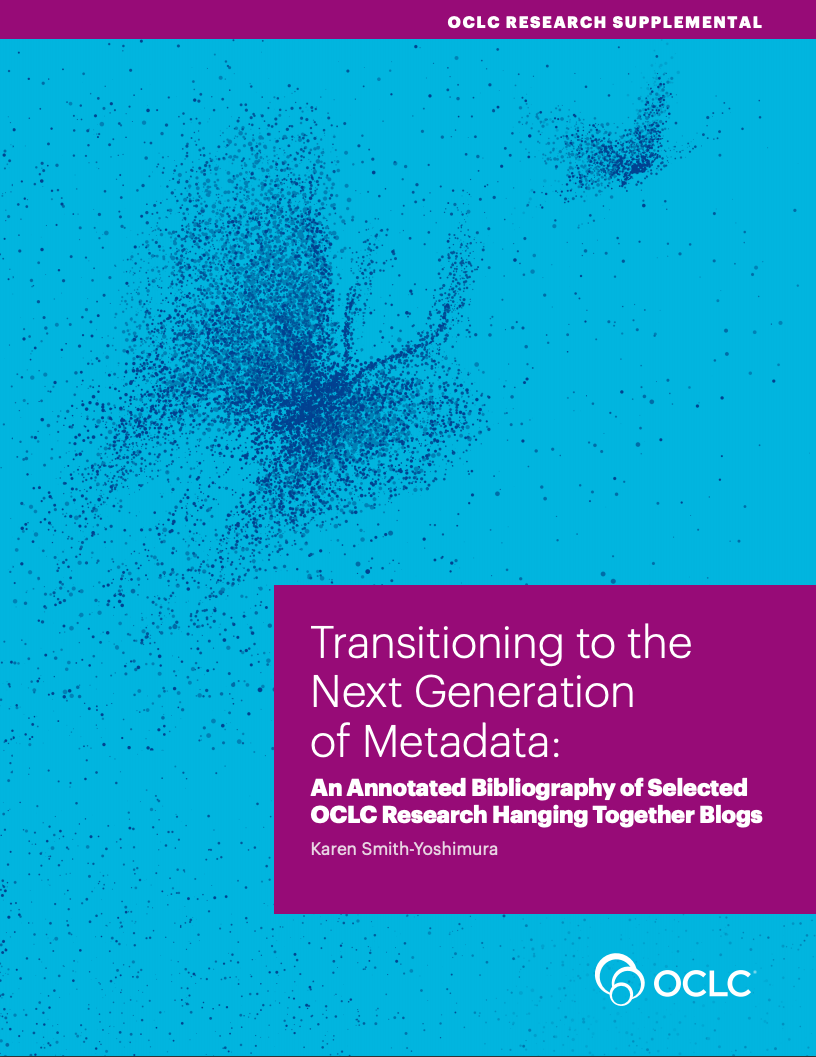
Transitioning to the Next Generation of Metadata - Annotated Bibliography
29 September 2020
Karen Smith-Yoshimura
An annotated bibliography that provides details on blog posts from Hanging Together: The OCLC Research Blog referenced in the Transitioning to the Next Generation of Metadata report.
-
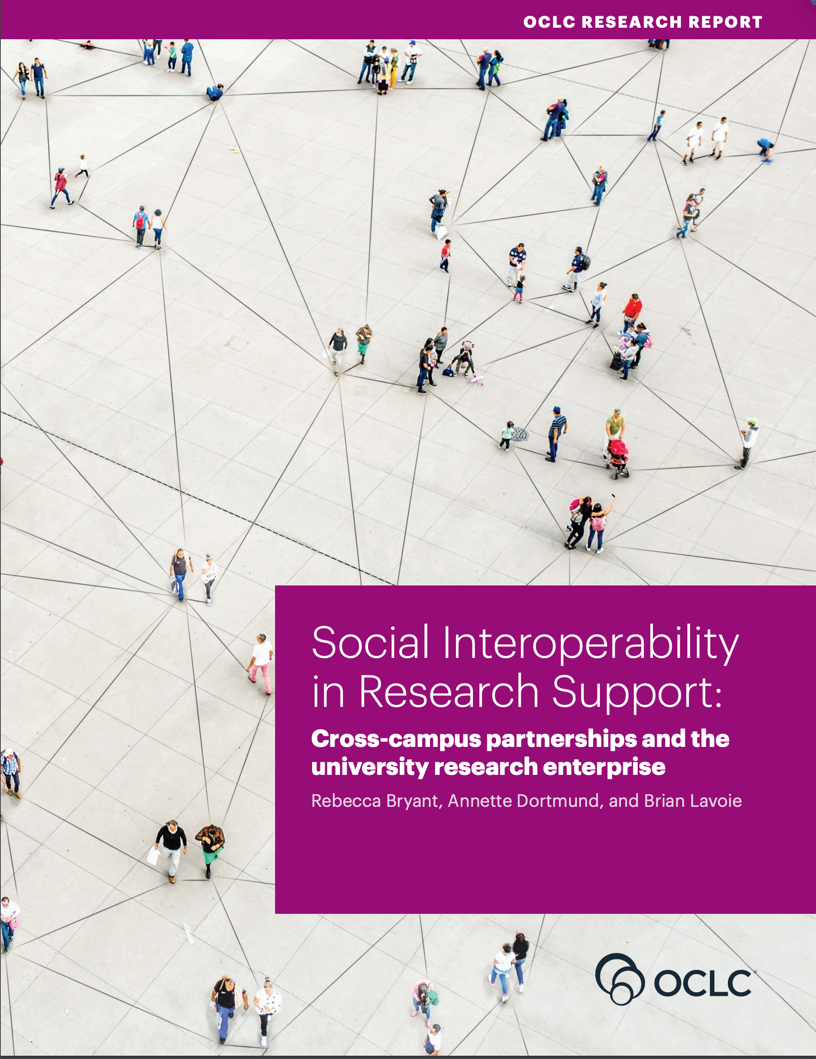
Social Interoperability in Research Support: Cross-campus Partnerships and the University Research Enterprise
20 August 2020
Rebecca Bryant, Annette Dortmund, Brian Lavoie
The report defines social interoperability and describes the network of campus units involved in major areas of university research support services. It concludes by offering recommendations for cultivating successful cross-campus relationships.
-
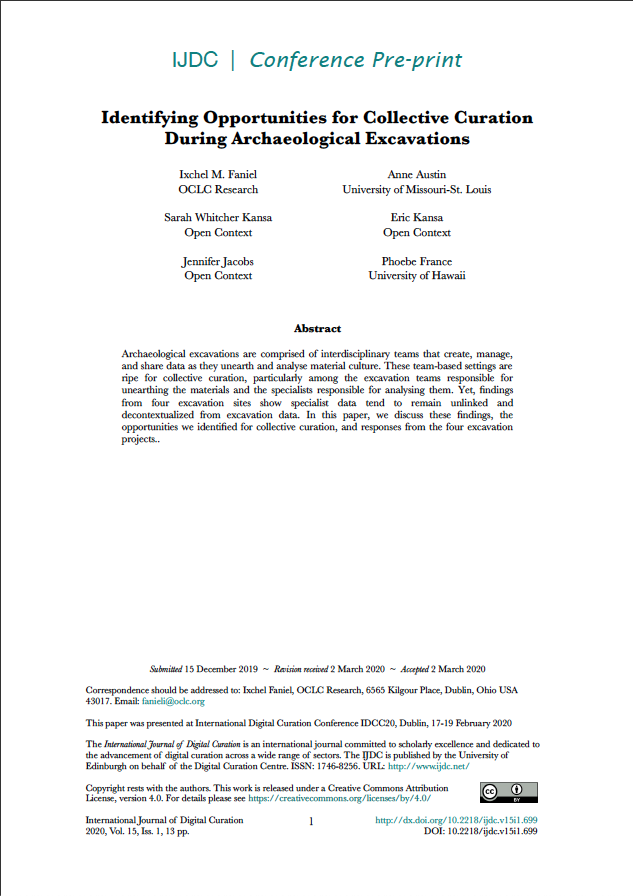
Identifying Opportunities for Collective Curation during Archaeological Excavations
6 August 2020
Ixchel Faniel, Anne Austin, Sarah Whitcher Kansa, Eric Kansa, Jennifer Jacobs, Phoebe France
Archaeological excavations are comprised of interdisciplinary teams that create, manage, and share data as they unearth and analyse material culture. These team-based settings are ripe for collective curation during these data lifecycle stages. However, findings from four excavation sites show that the data interdisciplinary teams create are not well integrated. Knowing this, we recommended opportunities for collective curation to improve use and reuse of the data within and outside of the team.
